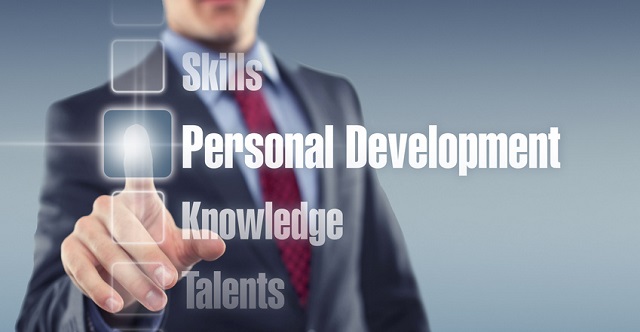Personal development is a lifelong process. It is a way for people to assess their skills and qualities, consider their aims in life and set goals in order to realise and maximise their potential.
There are a number of steps to take in managing your personal development.
1. Developing a Personal Vision
Personal development can simply be for fun. Most of us, however, find it easier to motivate ourselves to learn and improve if we have a purpose in doing so. Developing your personal vision – a clear idea of where you want to be in a few months or years, and why – is a crucial part of developing this purpose.
2. Planning Your Personal Development
Once you are clear about where you want to be, you can start planning how to get there. Drawing up a personal development plan is not essential, but it does make the planning process more realistic.
For more about this part of the process, take a look at our page on Planning Your Personal Development.
If you are struggling to identify which areas to target for development and improvement, you may find it helpful to read our pages on Personal SWOT Analysis and Identifying Areas for Improvement.
3. Starting the Improvement Process
There are a number of different ways in which you can learn and develop.
Our page on Improving Performance – Some Specific Techniques explains some ways of learning, including a technique called expertise transfer.
Our page on Learning Preferences suggests how different types of learning process may be more effective for certain people. You may also find our page on Learning Styles helpful in understanding how you like to learn.
4. Recording Your Personal Development
It is often a good idea to keep a record of your personal development. By writing down key developments in your learning and development as and when they occur, you will be able to reflect on your successes at a later date.
There is more about this on our page, Recording Your Personal Development.
This reflection may well help to motivate you to learn more skills in the future. Try keeping a learning log or journal as you develop your skills and knowledge.
See our page on Reflective Practice for some ideas of how to do this.
5. Reviewing and Revising Personal Development Plans
Our page on Learning Styles uses Kolb’s Experiential Learning Cycle to show that learning is a cycle. For more effective learning, it is important to reflect on your experience, and consider what you have learnt from it. Regularreview of your personal development plans, and your development activities, will ensure that you learn from what you have done. It will also ensure that your activities continue to move you towards your goals, and that your goals or vision remain relevant to you.
Source: Skills you need
